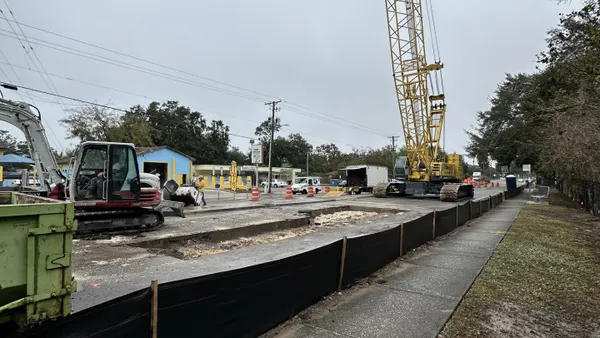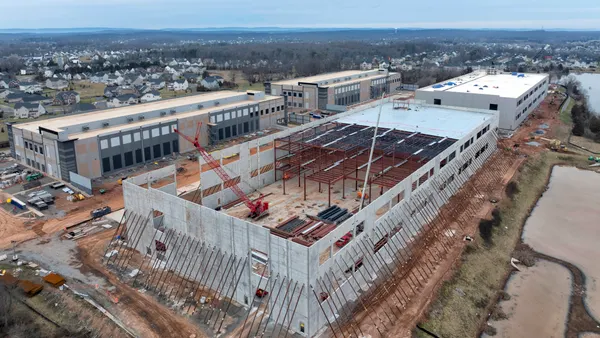Dive Brief:
- In a stated effort to make jobs and the economic health of Maine's construction industry a priority, the governor and state treasurer have reached an agreement on a bond matter that could have scuttled $600 million worth of infrastructure projects, according to the Portland Press Herald.
- State Treasurer Terry Hayes has agreed to Gov. Paul LePage's request that she put an $80,000 contract for the state's bonding agent out for rebid, and LePage has agreed to let the current bonding agent handle a critical June bond sale that will help fund this season's construction projects.
- LePage said the bidding process, which required that the bonding agent have multi-state experience, was unfair to many of Maine's bonding agents.
Dive Insight:
A postponement of the June bond sale would have meant that the state could not advertise for new work. Maine officials had already stopped awarding new contracts but would have most likely pushed forward with projects already under contract.
Maine, like many northern states, has a short period of time during the spring and summer to accomplish a large laundry list of road and other infrastructure projects before the snow and bitter temperatures of winter arrive.
New Jersey ran into a similar situation last July when Gov. Chris Christie stopped work on all non-emergency transportation projects after he and state Democrats could not come to an agreement on the conditions of a 23-cent gas-tax increase, which would bring additional revenue into the depleted Transportation Trust Fund. Christie wanted to provide taxpayer relief to balance out the hike by lowering the state sales tax by 1%, but Democrats opposed that plan.
As a result, Christie declared that, with the TTF empty, there was no money to further fund state highway projects, so he shut down approximately $3.5 billion of work on July 1. The industry shot back that demobilization and remobilization of equipment crews would add to the state's costs, but an even more pressing concern was how workers and contractors who relied on summer work would be able to last financially until the next spring when roadwork restarted.
In October, both Democrats and Christie came to an agreement on a sales tax cut, leaving only a month or so for crews to try to finish up as much work as possible before the traditional winter shutdown.










